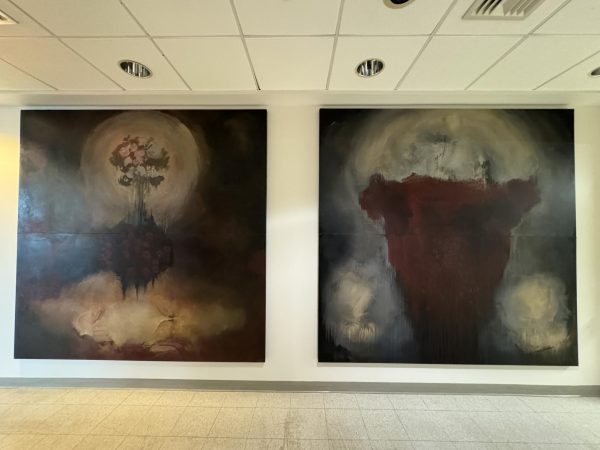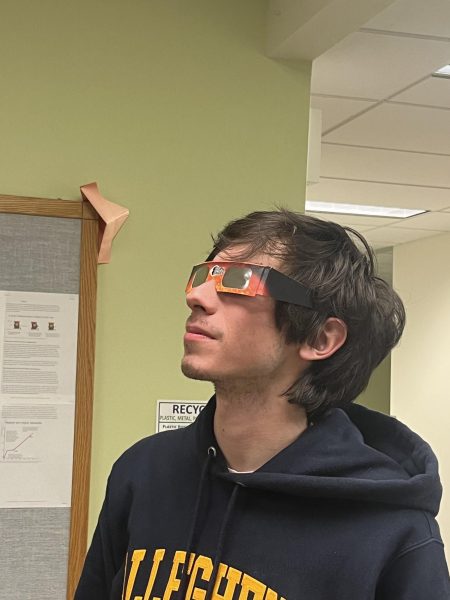Meadville residents share copy of last email sent from astronaut killed in Columbia space shuttle disaster
As the twelfth anniversary of the Columbia space shuttle disaster comes and passes, Meadville residents Richard and Phyllis Ackert have decided to share a copy they have received of one of the Columbia crew member’s final email.
On Feb. 1, 2003, the Columbia space shuttle returned to Earth after spending 16 days in space. The shuttle, which no one knew had sustained damage from foam shedding when it launched, first lost its left wing and then broke apart midair on its return to Earth, killing the seven astronauts aboard, including Laurel Clark, one of the mission specialists.
“You were just saddened by the loss of life,” Richard described.
The email was found by the Ackert couple when the cleaned out Richard’s mother’s home after her death. It depicts some of the sites and experiences of time in space, and serve as a few of the last words Clark could share.
“We’re like the most unlikely people to get this email,” Phyllis commented.
Once they received the email, which had sat unused and unviewed for some time in Richard’s mother’s home, they deliberated what to do with it. Phyllis said it seemed like a shame to let the email lie around uselessly and she decided to share it with the community instead.
With the email was also an extensive list of all the people it had been sent to before, to which the Ackerts found it had come from Augusta Valentine, a cousin working in Texas.
“It’s something like a German petri dish,” Richard described of the previous recipients of the email. “You know, it just keeps multiplying and multiplying and multiplying.”
Shafiqur Rahman, professor of physics, believes that Clark herself made the loss greater because she was a woman, along with Kalpana Chawla, another female mission specialist who was killed on the Columbia space shuttle.
“A loss of a female astronaut is a greater loss in the sense that the amount of women in the scientific community is lesser,” Rahman explained.
Altogether, only four female astronauts have been killed after their shuttles were launched.
The National Aeronautics and Space Administration closed its space shuttle program in 2011 in order to utilize its resources for space travel farther out than low-Earth orbit.
In the near future, Rahman said the public should not expect any trips into space. He believes the big projects for space travel will continue eventually, but the problem now is that the projects require extensive funding.
According to associate professor of physics James Lombardi, the accident itself caused the price of space travel to increase.
“The accident did cause for increased safety regulations and checks, which led to an increased cost per mission. By the end of the space shuttle program, the cost of each mission was between 1 and 1.5 billion dollars.
Her final email can be seen below:
“I have seen some incredible sights: lightning spreading over the Pacific, the Aurora Australis lighting up the entire visible horizon with the city glow of Australia below, the crescent moon setting over the limb of the Earth, the vast plains of Africa and the dunes on Cape Horn, rivers breaking through tall mountain passes, the scars of humanity, the continuous line of life extending from North America, through Central America and into South America, a crescent moon setting over the limb of our blue planet. Mount Fuji looks like a small bump from up here, but it does stand out as a very distinct landmark.
Magically, the very first day we flew over Lake Michigan and I saw Wind Point clearly. Haven’t been so lucky since. Every orbit we go over a slightly different part of the Earth. Of course, much of the time I’m working back in Spacehab and don’t see any of it. Whenever I do get to look out, it is glorious. Even the stars have a special brightness.
I have seen my “friend” Orion several times. Taking photos of the Earth is a real challenge, but a steep learning curve. I think I have finally gotten some beautiful shots the last 2 days. Keeping my fingers crossed that they’re in sharp focus.
My near vision has gotten a little worse up here so you may have seen pics/video of me wearing glasses. I feel blessed to be here representing our country and carrying out the research of scientists around the world. All of the experiments have accomplished most of their goals despite the inevitable hiccups that occur when such a complicated undertaking is undertaken. Some experiments have even done extra science. A few are finished and one is just getting started today.
The food is great and I am feeling very comfortable in this new, totally different environment. It still takes a while to eat as gravity doesn’t help pull food down your esophagus. It is also a constant challenge to stay adequately hydrated. Since our body fluids are shifted toward our heads our sense of thirst is almost nonexistent.
Thanks to many of you who have supported me and my adventures throughout the years. This was definitely one to beat all. I hope you could feel the positive energy that beamed to the whole planet as we glided over our shared planet.
Love to all,
Laurel”






